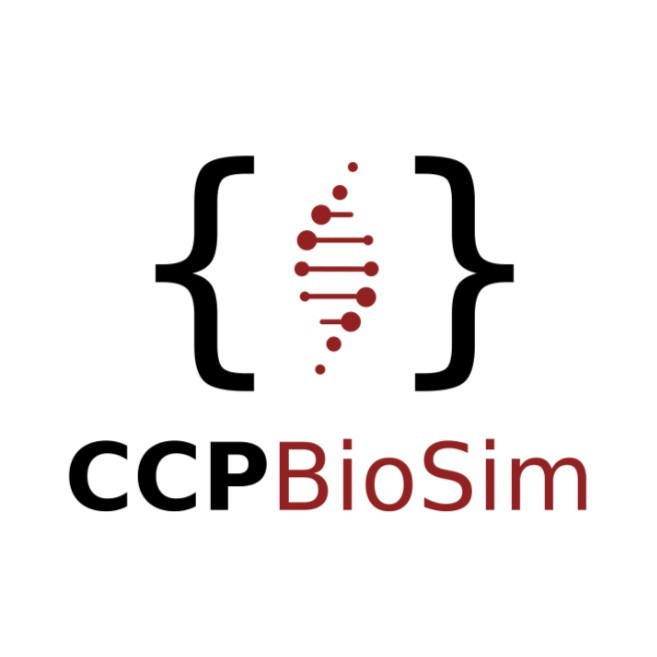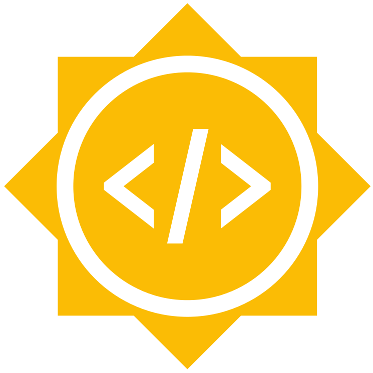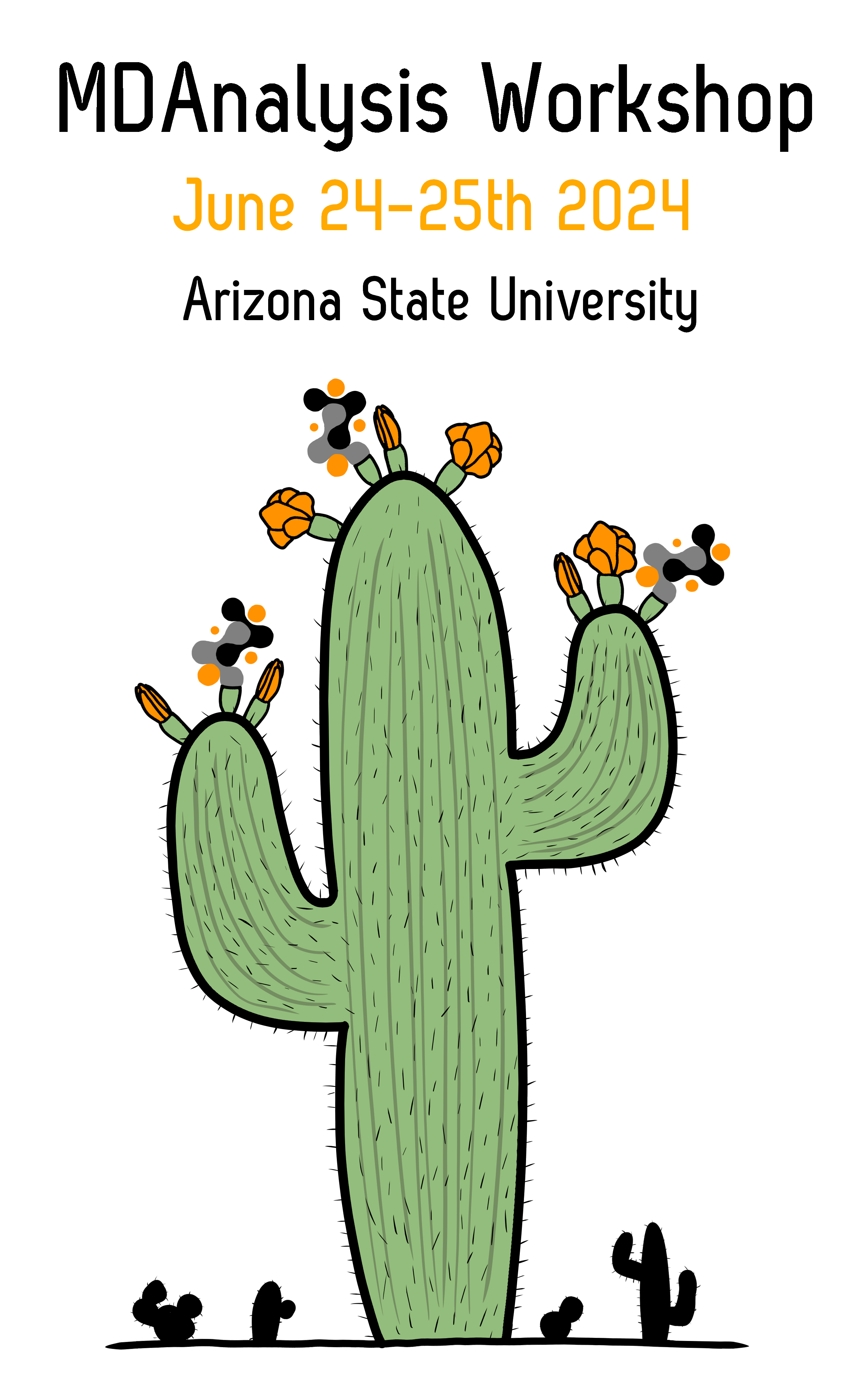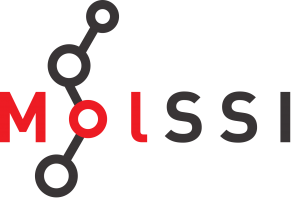30 May 2024

MDAnalysis has partnered with CCPBioSim to offer an industry talk on June 19, 2024 from 14:00 - 15:30 BST, presented by MDAnalysis core developer, Richard Gowers (@richardjgowers).
Title: MDAnalysis and Alchemical Simulations
Abstract: MDAnalysis is a popular Python package for the analysis of molecular dynamics simulation data. After introducing the package in broad strokes, this talk will give insight into how this package has been used and extended to process data coming from so-called “alchemical simulations”; where molecules are perturbed through non-physical states to provide estimates of properties such as binding affinities. Topics included will be biopolymer recognition, handling of multistate simulation data and analysing hybrid topology alchemical models.
Although attendance is free, you must register to receive the relevant Zoom information. Check out the CCPBioSim event page to access the registration link and find out more information.
27 May 2024
We are happy to announce that MDAnalysis is hosting three Google Summer of Code (GSoC) contributors - @ljwoods2, @talagayev and @lunamorrow - and an Outreachy intern - @adetutudeborah. MDAnalysis has been accepted as its own organization with GSoC for the fifth year running, and we are excited to be hosting our second-ever MDAnalysis Outreachy internship. We are grateful to Google and Outreachy for granting us the opportunity to get started on four very exciting projects!
GSoC


Streaming trajectory data directly from cloud storage will allow researchers to share their trajectories more easily than ever before, however, rewriting existing trajectory file readers for cloud-streaming would be a slow and complex process. zarrtraj, a trajectory file format based on Zarr storage, presents an alternative which natively supports AWS S3, Google Cloud Buckets, and Azure Blob Storage in addition to reading from a local directory without much added complexity. Lawson’s GSoC 2024 project will be to continue enhancing the ease-of-use, robustness, and efficiency of this format.
Lawson is a computer science student at Arizona State University (ASU) graduating in December 2024. You can find Lawson on GitHub as @ljwoods2 and on LinkedIn. To see updates on the zarrtraj project as well as his other projects you can check out his blog.

The main objective of Valerij’s GSoC project will revolve around the visualization of small molecules in 2D through the application of the MDAnalysis RDKit converter, which allows converting MDAnalysis atomgroups into RDKit objects and benefit from its powerful drawing code to display small molecules. These can then be annotated at the atom level with information associated with the MDAnalysis Universe or arbitrary data in an easy to use interactive display in Jupyter Notebooks.
Valerij is a pharmacy student who graduated from the University of Marburg, where he worked at the Kolb Lab. Valerij is currently a PhD student at the Free University of Berlin in the Wolber Lab with his research revolving around Toll-like receptor antagonists with addition to method development such as OpenMMDL.
You can find Valerij on Github as @talagayev and on LinkedIn. To see the updates on the 2D visualization of small molecules project follow his blog.

Direct interoperability between molecular dynamics software is critical for enabling collaboration, data transfer and easy use by scientists. OpenBabel is a popular toolbox for chemical molecular modelling as it allows conversion, searching, filtering and analysis of chemical data. The ability to interconvert between OpenBabel OBMols and MDAnalysis AtomGroups will enable input and writing of over 100 chemical data file formats.
Luna is a Bachelor of Advanced Science (Honours) student at the University of Queensland (Australia), studying biochemistry, computational sciences and software engineering. Luna currently works as a research assistant in Megan O’Mara’s group at the Australian Institute of Bioengineering and Nanotechnology, where her role involves code creation, maintenance and improvement. She is pursuing a career as a research software engineer. In her down time around university and work, Luna enjoys hiking, going to the gym, reading, buying plants, cuddling her cat Eddie and spending time with her partner and friends.
You can find Luna on GitHub as @lunamorrow and on LinkedIn. To keep up to date with the Extend MDAnalysis Interoperability with OpenBabel project, check out her blog.
Outreachy


MDAnalysis aims to establish clear communication channels to effectively disseminate information, engage the community, and encourage participation. The main objective of Adetutu’s Outreachy project is to develop a social media and communications strategy for MDAnalysis to grow its user and contributor base.
Adetutu will conduct surveys to understand the communication preferences of MDAnalysis developers and users. Based on the survey data, she will recommend the best platforms for discussions and increasing engagement.
Additionally, she will set up an email newsletter to keep the community updated on MDAnalysis news, announcements, and events.
Adetutu Oluwasanmi is a First-Class Microbiology graduate from Lagos State University. She recently completed a 1-year diploma in software engineering at AltSchool Africa, where she gained coding and software development skills.
Her previous roles include social media manager, communications intern, and freelance science writer, giving her a diverse skill set that she brings to her current project.
Adetutu is on GitHub as @adetutudeborah, and on Twitter as @adetutuoluwa2.
She will be documenting her internship journey on her Medium blog. Feel free to check it out for updates on her experience!
— @BradyAJohnston @cbouy @hmacdope @IAlibay @jennaswa @micaela-matta @orbeckst @richardjgowers @xhgchen @yuxuanzhuang (mentors and org admins)
14 May 2024


MDAnalysis, in conjunction with the Molecular Sciences Software Institute
(MolSSI) and with the support of the Chan Zuckerberg Initiative and the
Center for Biological Physics, is holding a free, 2-day workshop on June
24th-25th 2024 at Arizona State University in Tempe, Arizona, USA.
This two-day workshop is intended to transform attendees from users to
developers and will cover an introduction to MDAnalysis, software best
practices, and guide participants through the creation of their own MDAKit.
This workshop is suitable for students and researchers in the broad area
of computational (bio)chemistry, materials science and chemical engineering. It
is designed for those who have familiarity with MDAnalysis and are
comfortable working with Python and Jupyter
Notebooks. For a better idea of things participants should be comfortable doing in Python or to freshen up on your skills, please have a look at the MolSSI lesson, “Python Scripting for Computational Molecular Science”. Workshop
participants should also already have a working conda or mamba installation of
MDAnalysis (mamba
preferred), as well as an editor of their choice for editing files.
Workshop Overview
MDAnalysis developers and experienced MolSSI instructors will teach
participants how to build their own MDAnalysis-based Python packages by guiding
them through the development of their own MDAKits. Specifically, the workshop
will include 3 modules: (1) an introduction to using and writing custom
analyses in MDAnalysis; (2) an overview of software development and maintenance
best practices; and (3) an interactive hackathon session where participants
write their own MDAKits.
The program will run from the morning of Monday, June 24th until the early
evening of Tuesday June 25th. Breakfast and lunch will be provided
together with tea/coffee during breaks.
Parts of the workshop will be held in a hybrid mode for those unable to attend
in-person. Registration for the hybrid components is required. Recordings of
hybrid sessions will be made available after the workshop.
Registration
Attendance at this workshop will be free but the in-person part of the
workshop will be limited to 40 participants. The workshop will be delivered to
a small group to allow interactive discussions, questions, and participant
engagement.
A number of bursaries will be available to assist with travel and
accommodation costs for participants from outside the greater Phoenix
area. Bursaries (up
to $600 in costs for US domestic travel) and up to 3 nights of hotel
accommodation (single room within 5 minutes of the workshop venue) will be
awarded and you can apply for them as part of the registration process.
Register by May 27, 2024 (midnight anywhere on Earth):
Register
Bursaries for in-person attendance
We especially welcome your application if you consider yourself being part of
an underrepresented demographic in the computational molecular sciences.
Bursaries are reserved to enable the attendance of participants from outside
the greater Phoenix area.
Note that airfare for travel awardees will have to be booked by June 3 through
our travel agency, so as an awardee you will have to be able to
respond to our communications (via email) immediately and act quickly.
Bursary recipients will be notified on May 29 or earlier.
Online participants
Part of the workshop will be taught in hybrid mode and if you are not able to
attend in person, please register for the online portion using the same
registration link above.
Travel
Tempe is part of the “Valley of the Sun” metropolitan area, which encompasses
Phoenix, the 5th most populous city in the US. Today the area is home to more
than 4.8 million people and encompasses the ancient lands of the Akimel O’odham
(Pima), Maricopa, and Tohono O’odham tribes.
Airport
Phoenix Sky Harbor PHX airport has direct connections to all major hubs
in the US.
PHX airport is 5.5 miles (10 minutes by car/rideshare) from the workshop venue.
Public transport (Light Rail)
The Valley Metro Light Rail connects the airport to Tempe along a
West-East axis. If your destination is near a Light Rail stop then
public transport works well:
- Take the free PHX Sky Train from the terminal to the 44th St/Washington
Metro Rail stop.
- Walk from the Sky Train stop to the Light Rail stop (all inside the 44th St
Sky Train structure)
- Buy a ticket at the ticket machine near the exit escalators to the Light
Rail stop.
- At the 44th St/Washington stop (Stop #10018) take the
east-bound Light Rail (direction Mesa, Gilbert Rd/Main St).
- The stop closest to the Hyatt Place Hotel and the workshop venue is
University Dr/Rural Rd (Stop #10023). If you want to get off closer to
downtown Tempe get off one stop earlier at Veterans Way/College Ave (Stop #10025)
- Walk to your destination.
Car/rideshare
To get from the airport to anywhere in Tempe either take a cab (traditional or self-driving
Waymo) or rideshare (Lyft, Uber).
Workshop Venue
The workshop will be held in the Student Success Center in the Department of
Physics at Arizona State University (room PSF 186 in the Physical Sciences F
building). The address is
Department of Physics
Arizona State University
Physical Sciences F Building
550 E Tyler Mall, PSF 186
Tempe, AZ 85287
USA
Paid parking is available in the Tyler Street Parking
Structure and other on-campus parking structures.
Accommodation
The closest hotel (5 min by foot) is the Hyatt Place Tempe.
Other hotels are available in Tempe within walking distance.
Weather
Arizona is hot during June. Temperatures in excess of 110ºF (43.3ºC) are not
rare, so it is important that you bring a hat/sunscreen for sun protection and carry
enough water with you.
Avoid hiking in the desert during the hot portion of the day (10am - 6pm), as it
can be deadly.
Workshop materials
All materials are made available in the https://github.com/MDAnalysis/MDAnalysisMolSSIWorkshop-Intermediate2Day repository.
If you have any questions or special requests related to this workshop, you may contact the organizing committee.




